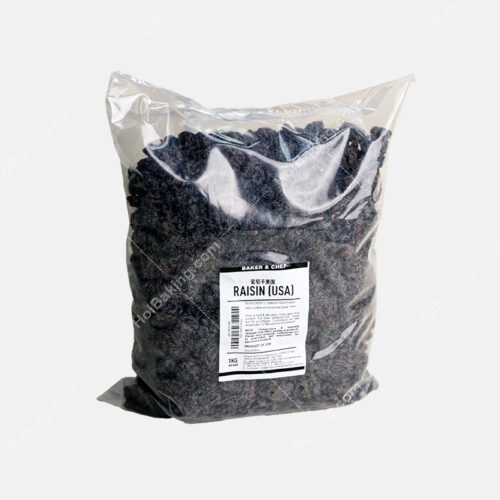🍇 What Are Sultana Raisins (from Iran)?
-
Made from seedless Sultana grapes (also called Sultanina or Thompson Seedless), grown predominantly in Malayer, Hamedan Province, Iran—the region is a major global exporter of this raisin variety
-
During processing, grapes are typically soaked in an alkaline solution (tizab) before drying in sun or shade, often treated with sulfur dioxide to maintain a light golden to tan color
🌟 Key Features
-
Color & Texture: Light brown to golden hues, juicy, fleshy, and softer than typical raisins. Softer grades (higher number) indicate more sulfur dioxide usage for color preservation
-
Size Grades: Classified by piece count per 100 g—Jumbo (~250–300), Standard (~300–370), Small (~400–500) depending on size grade metric and crop year
🧪 Nutrition & Health Benefits (per 100 g)
-
Calories: ~299–325 kcal
-
Carbohydrates: 75–79 g (mostly natural sugars)
-
Fiber: 3–4 g
-
Protein: ~2–3 g
-
Fat: ~0.4–0.5 g
-
Minerals: Rich in potassium (≈746 mg), iron (~1.8 mg), calcium (~50 mg), magnesium (~30 mg)
-
Vitamin C: ~2–3 mg
-
These raisins are also gluten‑free, GMO‑free, and free from artificial additives in many batches—though sulfur dioxide is used for color preservation. Shelf life up to 18–24 months when stored cool and dry
Benefits include energy boost, digestive support via fiber, antioxidant capacity, support for bone and blood health, plus mineral-rich nutrition
🍽️ Culinary Uses
-
Snacking: Eaten as standalone snack or mixed with nuts/seeds.
-
Baking & Dessert Use: Great in cakes, cookies, fruit breads, puddings, and granola.
-
Savory Dishes: Added to rice pilafs, couscous, tagines, or salads for natural sweetness and texture contrast
-
Industrial Use: Common ingredient in breakfast cereals, fruitcake, confectionery, and baked goods for moisture retention and sweetness
🧊 Storage & Handling
-
Moisture: Keep moisture below ~15% to avoid stickiness or spoilage.
-
Duration: Store at room temperature (cool & ventilated), shelf life ~18 months; refrigerating below 5 °C extends freshness to up to a year
✅ Summary Table
| Feature | Details |
|---|---|
| Origin | Malayer, Hamedan Province, Iran |
| Grape Variety | Seedless Sultana (Thompson Seedless) |
| Appearance | Light brown to golden; fleshy, soft texture |
| Nutrients (per 100 g) | ~299–325 kcal; 75–79 g carbs; ~3 g fiber; minerals |
| Sugar Content | ~60 g sugars (natural) |
| Grades/Sizes | Jumbo / Standard / Small (piece count graded) |
| Shelf Life | 18–24 months (dry, cool storage) |
| Benefits | Energy, heart, bone, digestion, iron supply |
| Best Uses | Snacking, baking, savory dishes, cereals |
⚠️ Notes & Precautions
-
Moderate Sugar: High natural sugar content means they’re energy-dense—consume in moderation, especially with blood sugar concerns .
-
Sulfite Allergy: Light colors often indicate sulfur dioxide use; avoid if sensitive or allergic.
-
Choking Hazard: As per dried fruit cautions, may present risk for young children—serve appropriately
💡 Pro Tips & Ideas
-
Soak raisins in warm water or alcohol before baking for softer texture.
-
Blend into oatmeal, yogurt, or compote with nuts and spices for balanced sweetness.
-
Mix into savory grains like couscous or rice dishes with citrus zest, pine nuts, or herbs for contrast.
-
For nutrient-dense snacks, pair with almonds or walnuts for iron, calcium, and protein boost.



















